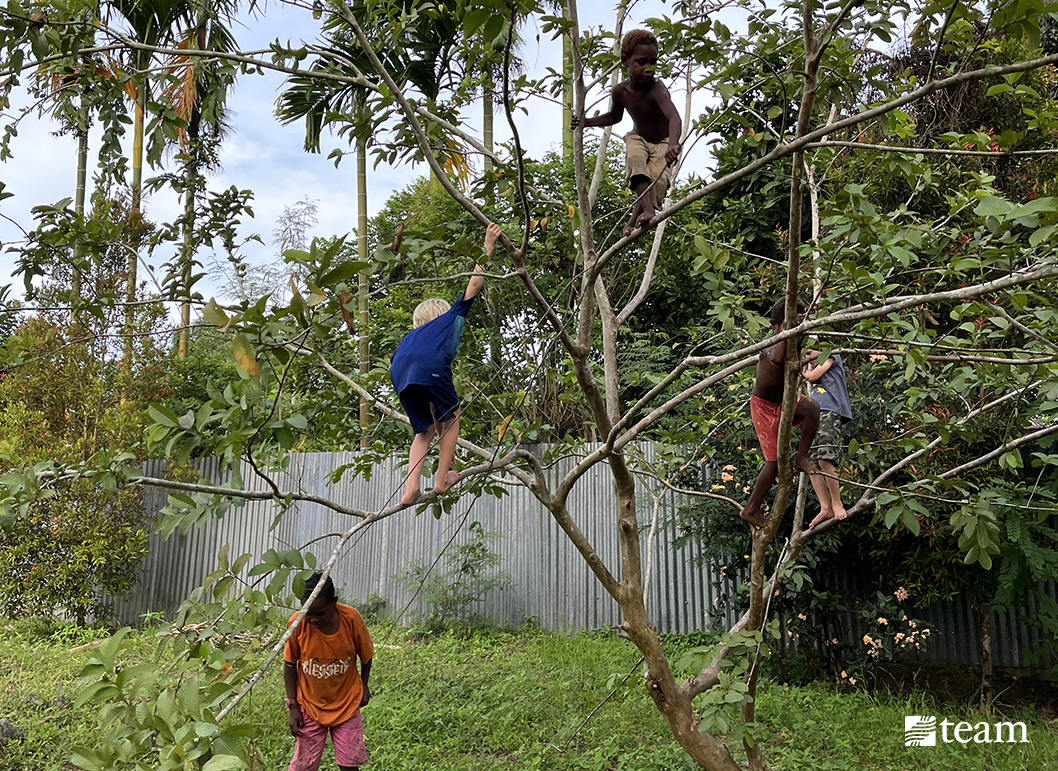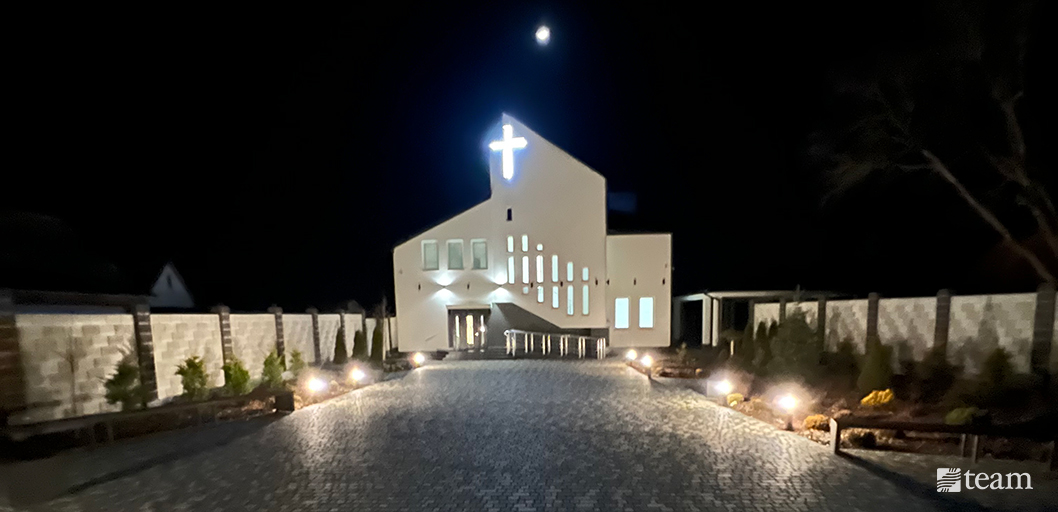
Ministry Updates
Families Transformed by the Gospel in Papua
June 16, 2022
by Suzanne Pearson
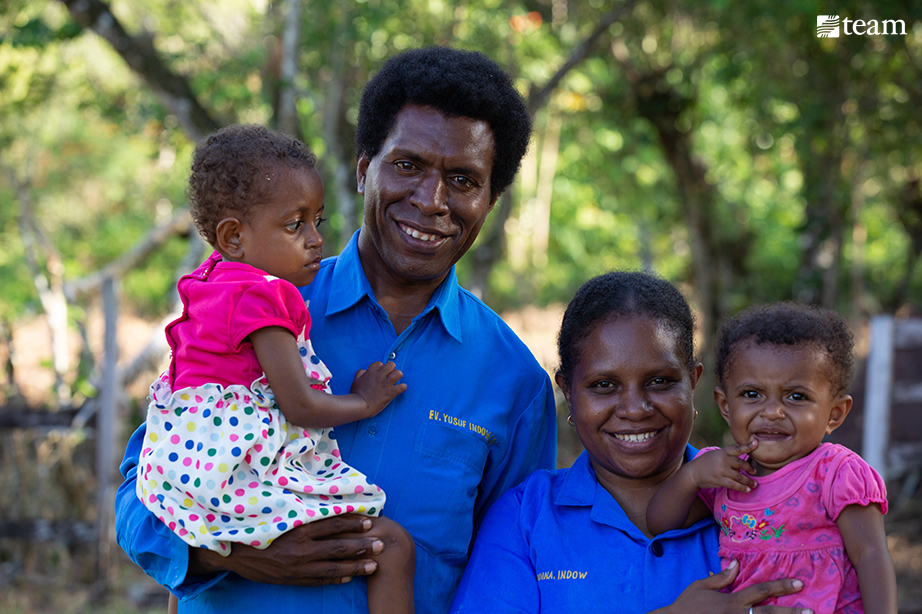
How do we impart biblical truth while also respecting important cultural traditions? As we follow Jesus’ command to “go into all the world,” how do we make sure we don’t “go” like a steamroller? This is perhaps one of the greatest challenges of cross-cultural ministry, especially when it comes to something as central to a society as its concept of “family.”
God’s heart for marriage and family is seen throughout Scripture. For traditionally Judeo-Christian cultures, a loving and nurturing family dynamic is easily understood. But what about in cultures where family relationships look very different? How can we as the Church foster Gospel transformation without imposing standards that may be more “western” than “biblical?”
And even more importantly, how can each family transformed by the Gospel spread that transformation to others in their own culture?
Balancing Culture with Truth
When long-time TEAM workers Walter and Diane Kennedy traveled to Papua nearly 40 years ago, this was the challenge that lay before them. The couple answered the call to raise their own family in Minyambou, a village in the interior region of Papua, Indonesia. Building on the existing work of TEAM missionaries Dick and Char Griffith and Doug and Julie Miller, the Kennedys established a small Bible school among the Hatam people. The school, often called “SAM” (due to its acronym in Indonesian), allowed new believers to stay together as families while learning.
Many of the Hatam people were already drawn to the Gospel. Christian men were being trained as pastors, and their wives learned the Bible from Diane and the other wives of western missionaries. But as the Hatam couples arrived at SAM, Diane and Walter could quickly see that family dynamics would be challenging. Traditional Hatam marriages are arranged, and there was little warmth or communication between husbands and wives. Most men viewed their wives as the keepers of the garden and the bearers of their children but not much more. Women believed they had no lasting value or purpose. Children experienced a lack of discipline and had little to no relationship with their fathers until adolescence.
Walter, Diane and their co-workers prayed for the Hatam people to grasp God’s design for marriage and family. If only they could learn how joyful their lives could be if the love of Christ and the Word of God inhabited their families! Yet the Kennedys knew this would be a slow and gradual process. They knew the importance of respecting the Hatam traditions and letting the Holy Spirit take the lead.
God’s Heart for the Family Takes Root
Over time, the Lord began opening the eyes of Hatam believers to the abundant life they could experience in their families. Marice is from one of those Hatam families. After growing up observing the Griffiths’ loving family, Marice came to know the Lord as a young adult. Today she is one of the top leaders in the Hatam church and the Indonesian Mission Board. She recalls how God changed families in a profound way in those early days.
“When we all began to get the Bible training and to read Scripture, [the Hatam people] realized how important both man and woman are in God’s eyes,” Marice remembers. “The men began to treat their wives in a different way, with a kindness that had not been in their communities before. The family unit was stronger because now they were working together and they were kind to each other, realizing what Christ had done.”
Still, the Kennedys were careful to leave some Hatam traditions alone. “There are still cultural things that we won’t touch,” Diane explains. “Like in the church or any kind of meeting, the men sit on the one side, the women on the other. But you’d see more families coming together [to informal gatherings].”
A Guidebook to Family Life
One of the most effective ways that the Kennedys found to impart biblical family values to the Hatam people came from a Hatam student. The young man asked for something he could share with families to help them navigate difficult situations. From that idea, the Family Life Book became a labor of love for Walter. Diane recalls the first printing of the books, now over 20 years ago. “Walter just said, ‘let me take a look at what the Bible says, let’s lay that out [in the Hatam language]. We’ll give cultural concepts of how that works into their life – what is biblical and what is cultural?’”
That same student took the book and shared it continuously with churches and villages. Then in 2018, Walter updated the Family Life book to include new topics such as technology. Walter says the book is invaluable in presenting biblical concepts in such a way that doesn’t attack the culture but rather poses the suggestion to “try a different way.”
Marice recalls how the Hatam people saw the benefits of this “different way.”
“[Women] remembered how their mothers and fathers had treated each other, but they witnessed the difference now in their own marriages. We realized what our moms and dads were going through not knowing Christ and how that was different for us and different in our marriages as well.”
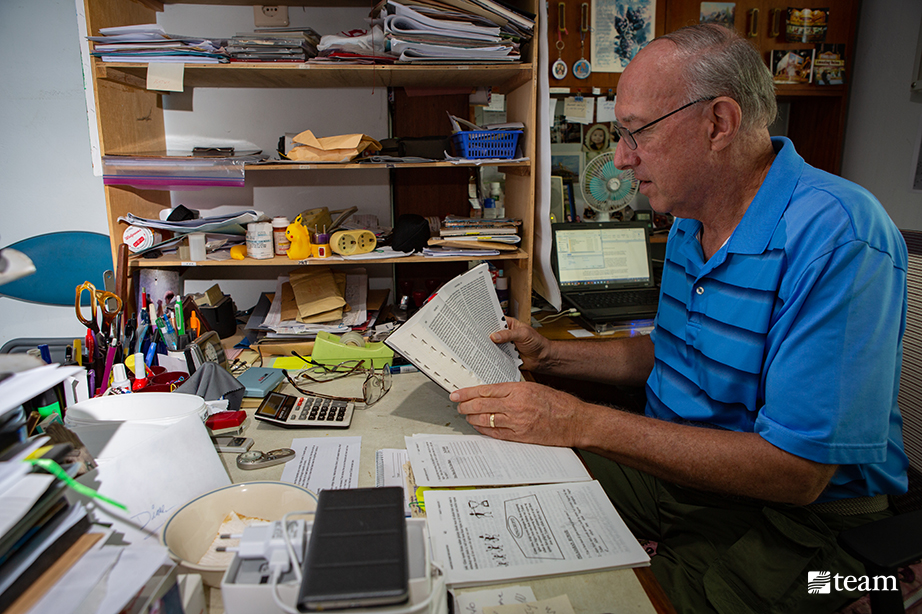
Through the Family Life Book, Hatam believers learn to love their families as Jesus does.
Training up the Children
The work of the Griffiths, Millers, and Kennedys were the first seeds planted among the Hatam. But as new generations came along, so did a legacy of faith.
Resina is a remarkable Hatam woman and a leader in intracultural missions in the Hatam church. Resina’s parents came to know the Lord before she was born, and she grew up hearing about Jesus. When she was about 20 years old, she came to SAM for the literacy program as well as to learn more about the Bible. She trusted Christ and since then she and her husband have faithfully served Him in ministry as well as in parenting.
“I just knew how important it was for my children to understand about Jesus at a very young age, and so that was always my intent,” says Resina. “So as the children came along…it’s been very important for them to be involved in learning God’s Word, and for me to be the one that is teaching them.”
Resina’s efforts were not in vain, as her adult daughter Tamarina is a living testimony of her mother’s discipleship. Tamarina now teaches children in the Hatam church. “Because I had godly parents that made sure I went to Sunday school, I wanted that for the kids that I saw that were in our village,” says Tamarina. “I had godly parents that really cared about me and made sure that my spiritual growth was maturing and developing. I [wanted to do] that for these kids.”
Tamarina sees the importance of training up the next generation. “The future is the kids. And so that’s why we’re putting our time and energy into these kids, because they are the future leaders.”
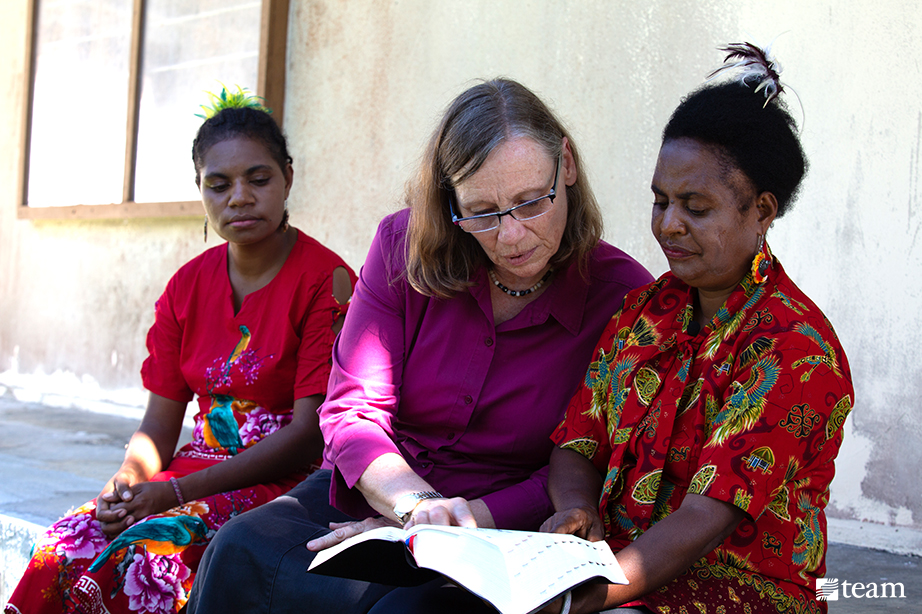
Tamarina and her mother Resina share a special bond with Diane as her sisters in Christ.
Papuan Leadership in Missions
Today the Papuan believers represent a beautiful example of a thriving global Church. No longer are western missionaries at the helm as in the early days when biblical truth was a foreign concept. Walter and Diane’s role has shifted to one of providing resources and encouragement. This is evident as the Lord raises up godly men in Papua to serve as pastors and evangelists as well as in other aspects of the ministry. For instance, when the Griffiths retired, it was Hatam believers who took over the work they had started of translating the full Bible into Hatam. A Hatam leader was also tasked with taking on the literacy program and has faithfully continued in that task for decades.
Diane shares that the passing the baton of women’s ministry to Papuan women happened organically. She smiles as she recalls, “One would come up to me and say, ‘I would like to be the one that trains the younger girls [for the] women’s programs. And then another said, ‘I would like to do a class with widows in the area.’”
Where once Diane was speaking in front of 1,300 women all at once, she now helps her Hatam sisters find materials and resources to use as they go far and wide to teach others in smaller groups. “The women just took [the materials] into their own villages, and wow! They keep me busy! They’re like ‘you got anything else?’”
The Missions Board Looks Ahead
Walter’s face lights up as he talks about the future of the church in Papua, with a strong missions board steering the ship. The board is made up of all national Papuan leaders, most of them Hatam. Marice is one of them. These leaders are effective in reaching even the most remote villages in Indonesia with the Gospel because their lives and cultures are so similar. (See how Papuan church leaders are impacting their nation in this video.)
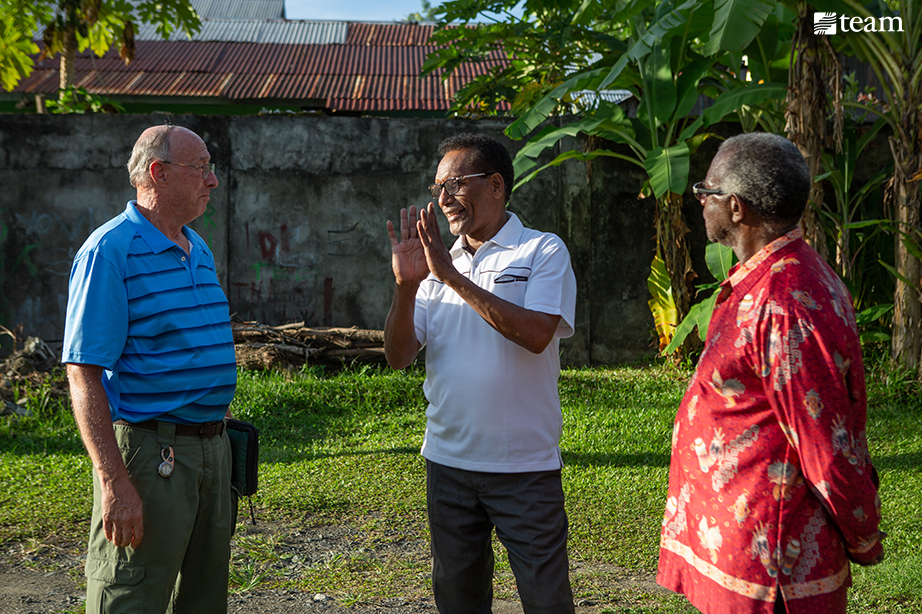
With Walter and Diane’s encouragement, the Hatam people have taken up the mantle of leadership and now carry the Gospel message to other Papuan tribes.
The Future
As Marice looks back on the past 40+ years, there is a full-circle ministry moment. “When the Griffiths and the Millers came, they lived with us and they loved us. They felt that it was important for us to hear about God and they raised their families with us,” she recalls. “Then when Kennedys came and they stayed as well, we saw what they had for us to learn, and then we learned how to love each other. We learned about Jesus. They just loved us for who we were and shared with us the Truth.”
Diane knows that Marice, Resina, and many others like them will carry the ministry on as she and Walter support them along the way. Diane sends them, equipped and encouraged, saying, “Now you keep on with the teaching that you’ve been given.”
